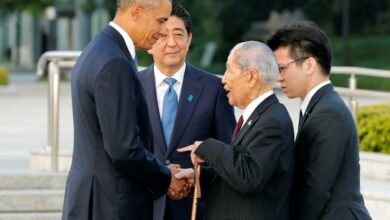Curfew sparks surprise, confusion in Peru’s capital

Lima, Apr 5 (EFE).- A one-day curfew ordered by leftist President Pedro Castillo’s administration for the Peruvian provinces of Lima and Callao triggered surprise and confusion on Tuesday in this capital.
The National Ombudsman’s Office and several politicians have slammed the measure as unconstitutional, while Castillo and several of his Cabinet ministers will appear before Congress on Tuesday afternoon to explain the reasons for the action.
Issued in response to a week-long truck drivers’ strike, the curfew affects around 10 million people in those two provinces of west-central Peru,
Workers in essential sectors, however, are exempted from the measure.
Efe observed that many people in the Lima Metropolitan Area, which comprises the provinces of Lima and Callao, were unaware of the action that Castillo announced Monday shortly before midnight.
Some also said they needed to get to their workplaces in spite of the curfew.
Only a handful of National Police buses could be seen arriving at bus stops on major thoroughfares in Lima – including the Santa Anita district on the capital’s east side – to pick up people in need of a ride.
People also could be seen waiting for some form of transportation on the nearly deserted Carretera Central, a highway that links Lima with parts of central Peru and had been blocked by demonstrators at certain junctions on Monday.
RPP radio, however, reported that the Santa Anita Wholesale Market, Lima’s largest, was operating normally at the start of the day and selling products to different retailers.
ACCUSATIONS OF INCONSTITUTIONALITY
The National Ombudsman’s Office early Tuesday denounced the government’s action as unconstitutional, calling it “absolutely disproportionate to the incidents of social protests that occurred in Lima and Callao.”
It also filed a habeas corpus petition with the Superior Court of Justice of Lima against Castillo and several Cabinet ministers in a bid to bring the curfew to an end.
Castillo’s administration adopted the curfew in response to a nationwide truck drivers’ strike that began on March 28 in protest against high fuel prices and was still in effect on Monday, when some roadblocks were set up on different highways.
The president said the curfew would run all day Tuesday to safeguard citizens’ basic rights and would not impede the provision of essential services.
The government also decreed a state of emergency in Lima and Callao, suspending constitutional rights related to personal freedom and security, the inviolability of homes and the freedom to assemble and circulate freely.
Those restrictions do not apply, however, to the mobility of personnel in the sectors of healthcare, water, sanitation, electricity, fuel, telecommunications, cleaning, funeral services and the transportation of goods and cargo.
The measure states that workers in both the public and private sectors will be restricted to working remotely for the duration of the curfew.
The president appealed for calm late Monday and justified the need for the curbs, saying certain groups were planning violence to block the movement of trucks into the provinces of Lima and Callao.
He said protests are a constitutional right but must take place “within the framework of the law, respecting people’s security and public and private property.”
The Ombudsman’s Office said, however, that the measure does not take into account the “severe impact” on workers in the Peruvian capital and demanded it be rescinded immediately.





